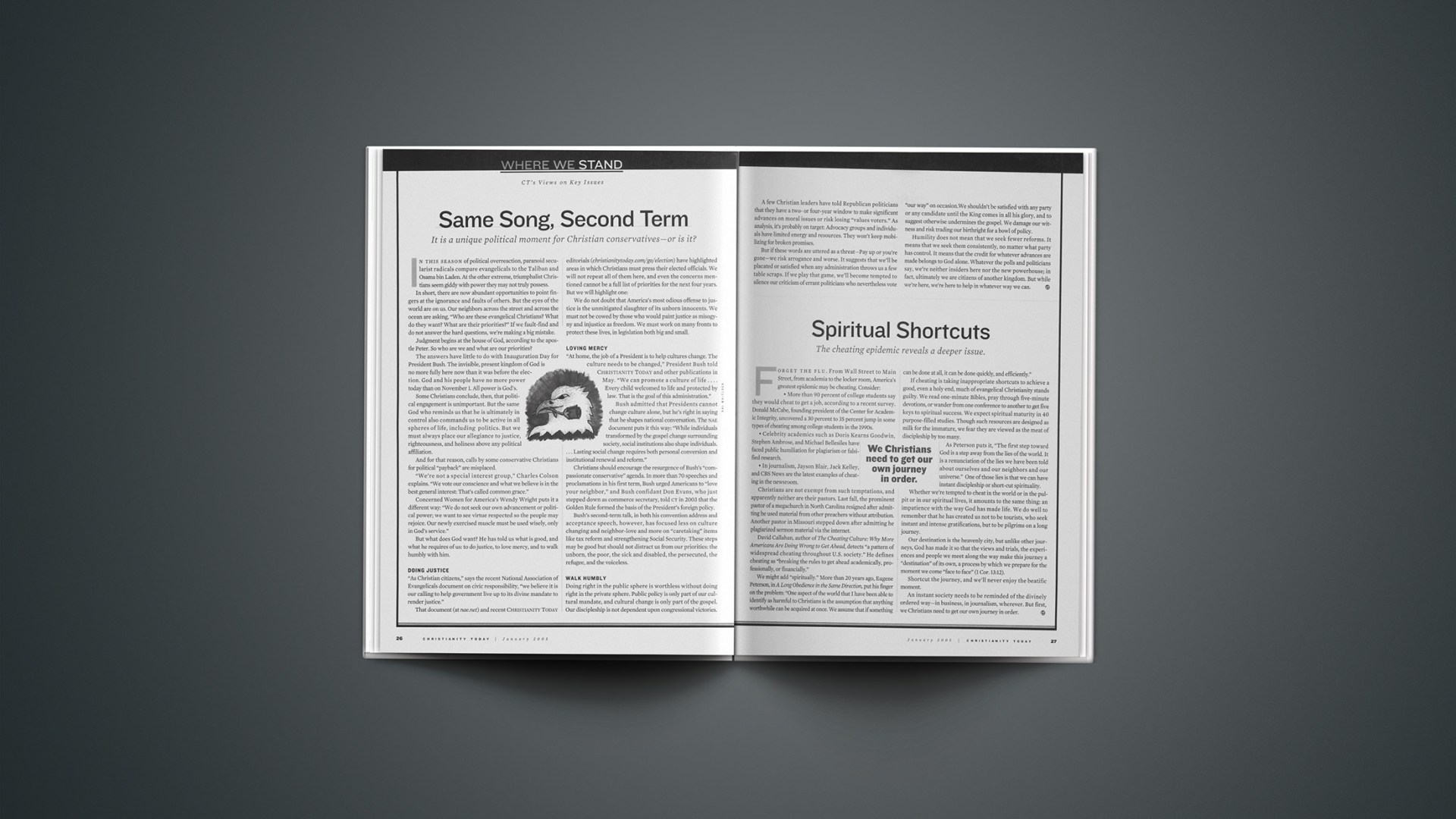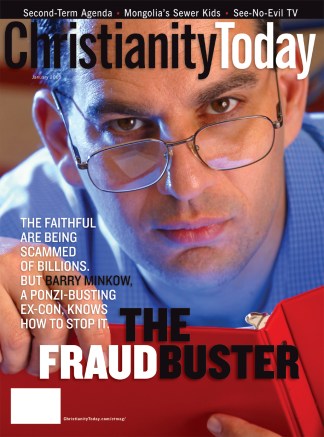Forget the flu. From Wall Street to Main Street, from academia to the locker room, America’s greatest epidemic may be cheating. Consider:
- More than 90 percent of college students say they would cheat to get a job, according to a recent survey. Donald McCabe, founding president of the Center for Academic Integrity, uncovered a 30 percent to 35 percent jump in some types of cheating among college students in the 1990s.
- Celebrity academics such as Doris Kearns Goodwin, Stephen Ambrose, and Michael Bellesiles have faced public humiliation for plagiarism or falsified research.
- In journalism, Jayson Blair, Jack Kelley, and CBS News are the latest examples of cheating in the newsroom.
Christians are not exempt from such temptations, and apparently neither are their pastors. Last fall, the prominent pastor of a megachurch in North Carolina resigned after admitting he used material from other preachers without attribution. Another pastor in Missouri stepped down after admitting he plagiarized sermon material via the internet.
David Callahan, author of The Cheating Culture: Why More Americans Are Doing Wrong to Get Ahead, detects “a pattern of widespread cheating throughout U.S. society.” He defines cheating as “breaking the rules to get ahead academically, professionally, or financially.”
We might add “spiritually.” More than 20 years ago, Eugene Peterson, in A Long Obedience in the Same Direction, put his finger on the problem: “One aspect of the world that I have been able to identify as harmful to Christians is the assumption that anything worthwhile can be acquired at once. We assume that if something can be done at all, it can be done quickly, and efficiently.”
If cheating is taking inappropriate shortcuts to achieve a good, even a holy end, much of evangelical Christianity stands guilty. We read one-minute Bibles, pray through five-minute devotions, or wander from one conference to another to get five keys to spiritual success. We expect spiritual maturity in 40 purpose-filled studies. Though such resources are designed as milk for the immature, we fear they are viewed as the meat of discipleship by too many.
As Peterson puts it, “The first step toward God is a step away from the lies of the world. It is a renunciation of the lies we have been told about ourselves and our neighbors and our universe.” One of those lies is that we can have instant discipleship or short-cut spirituality.
Whether we’re tempted to cheat in the world or in the pulpit or in our spiritual lives, it amounts to the same thing: an impatience with the way God has made life. We do well to remember that he has created us not to be tourists, who seek instant and intense gratifications, but to be pilgrims on a long journey.
Our destination is the heavenly city, but unlike other journeys, God has made it so that the views and trials, the experiences and people we meet along the way make this journey a “destination” of its own, a process by which we prepare for the moment we come “face to face” (1 Cor. 13:12).
Shortcut the journey, and we’ll never enjoy the beatific moment.
An instant society needs to be reminded of the divinely ordered way—in business, in journalism, wherever. But first, we Christians need to get our own journey in order.
Copyright © 2005 Christianity Today. Click for reprint information.
Related Elsewhere:
The Center for Academic Integrity has more stats on cheating in college.
TheCheatingCulture.com has more information on cheating across many disciplines.
ABC’s 20/20 recently profiled some college cheaters, including one girl who was paid about $20,000 by Wal-Mart heiress Elizabeth Paige Laurie to do most of her papers at the University of Southern California.
CT found that students at private religious schools were more likely to cheat than students at other schools.










